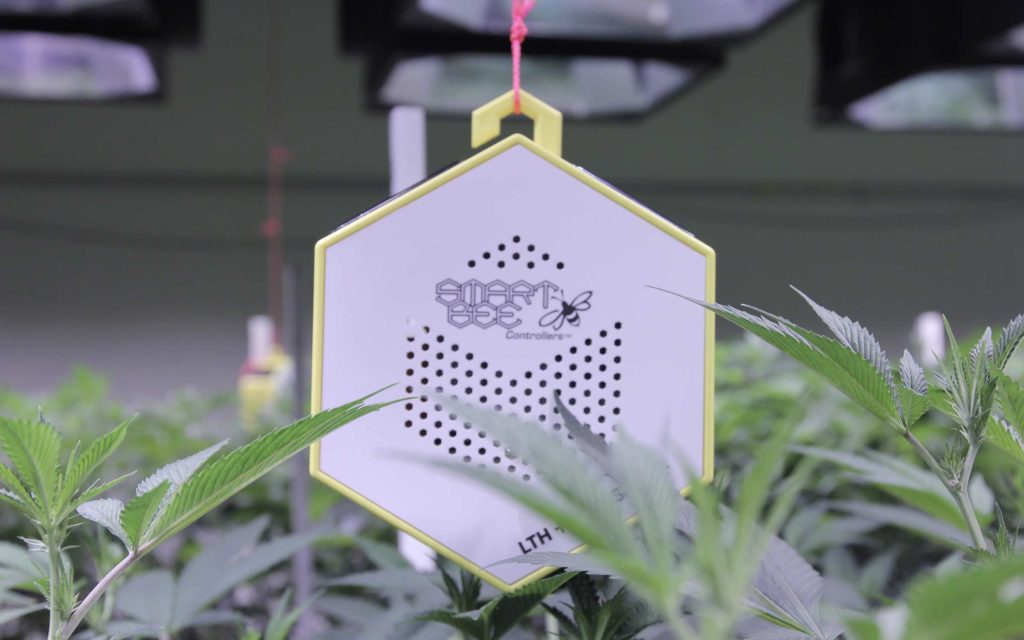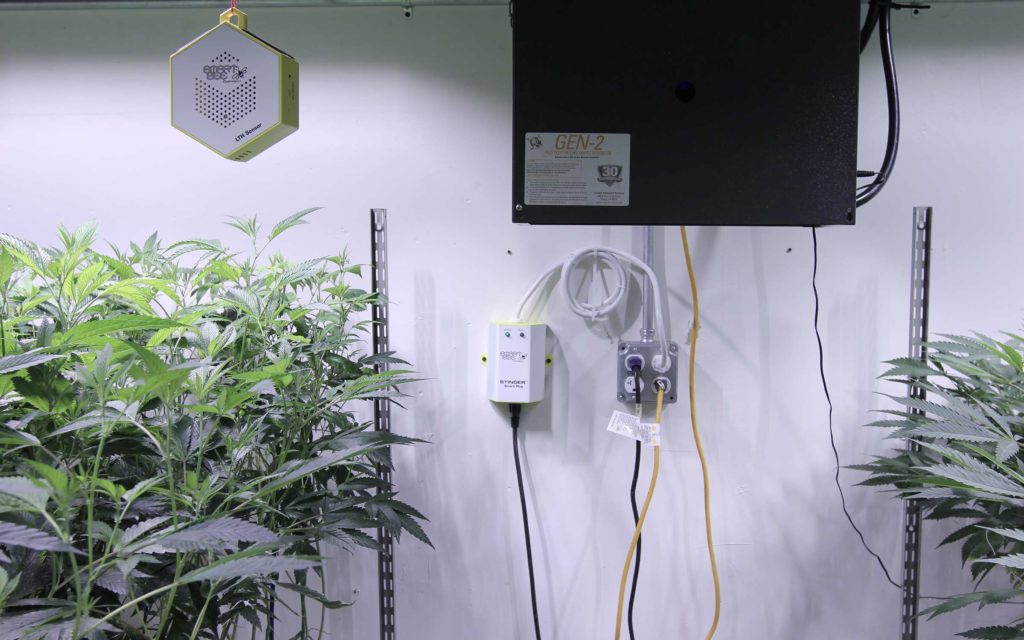Powdery mildew – or PM – can be a farmer’s worst nightmare. The mildew is easy to spot as it appears on the leaf as a matte-white frost—almost like that fake snow spray you often see around Christmas time. It is a fungal disease that affects many more plant species than just cannabis, having devastated some whole rose and grape crops in the past.
All fungal infections require plant tissue to survive; the mildew originates from spores than can be anywhere. If there are parts of your room that are made from wood, the spores can hide there. It’s also possible that the spores were in your medium or carried onto your plants from other rooms or facilities. This is why keeping a clean environment is so important. Even with these potential spores present, you will never see a sign of powdery mildew unless the environmental conditions become favorable for the mold to develop.
If the room’s temperature is low and the humidity is high, the mildew will spread rapidly. It favors parts of the room where plants are more crowded together and in shadows. In nature, wind will spread the mildew through a crop, in growrooms this occurs because of the fans. To control the spread of an affected area, lower or turn off your fans to avoid spreading the spores across the whole room. Once you have controlled the affected area, turn the fans back up.
The temperatures in which PM thrives is between 50-65 degrees Fahrenheit, with a relative humidity between 80-90 percent. Try and ensure that their are no peaks to your temperatures or to your humidity. There is an amazing product on the market these days called the SmartBee controller. These small yet powerful devices have extremely sensitive sensors built in which can monitor your temperature, humidity and CO2 levels. The sensors are hung in your room, sending their readings to a hub called the Hive. As the user, you can log into their web app on any device and see the real-time data from your rooms.

More importantly, the device works with a unit called a Stinger. Via this unit, the in-room sensors can control your humidifier and CO2 burners, ensuring that the machines work more efficiently and accurately. The sensors in the Smartbee are highly advanced and work better than the internal units of the humidifiers we have used in the past. The Smartbee has really helped growers achieve better control over their environments, and, in turn, preventing issues like powdery mildew.

Another new device that has been proven to be an affective mold fighter is called the Odor Champ. This machine works via bipolar ionization, creating what feels like fresh mountain air. Via this process of ionization, the mold spores are unable to survive in the room. This occurs when adding both positive and negative ions into a room, creating an environment unable to sustain the growth of the mold spores.
Some topical treatments that can be very effective, including the use of beneficial bacteria like Serenade or Actinovate. Regular 2-percent milk can also be effective at a 1:10 ratio so one part milk to 10 parts water. The milk can help change the pH of the leaf, preventing the growth of the mold. Silica can also work really well as an effective preventative, products like Advanced Nutrients Rhino Skin are great for adding silica into your regiment. The silica strengthens the cell walls of the leaf and can help degrade the part of the fungus that penetrates the leaf, feeding off of it to stay alive. All in all, PM is a treatable problem — but get on it quickly before it spreads, because it only takes a few days for a small outbreak to turn into a plague.
Keep it green and keep on growing!
Any questions? Please feel free to email me at harryresin@hightimes.com; and for more photos, you can find me on Instagram as Harry_Resin
from
http://hightimes.com/grow/harrys-world-how-to-avoid-powdery-mildew/
No comments:
Post a Comment